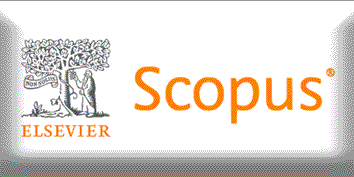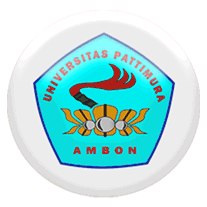ANALISIS PERMINTAAN KONSUMEN TERHADAP KONSUMSI MINYAK TANAH RUMAH TANGGA DI DESA PELAUW DENGAN MENGGUNAKAN ANALISIS REGRESI BERGANDA
Abstract
Analisis regresi berganda adalah persamaan regresi yang melibatkan dua atau lebih variabel dalam analisa. Tujuannya adalah untuk menghitung parameter-parameter estimasi dan untuk melihat apakah variabel bebas mampu menjelaskan variabel terikat dan memiliki pengaruh. Variabel yang akan diestimasi adalah variabel terikat, sedangkan variabel-variabel yang mempengaruhi adalah variabel bebas. Dari variabel-variabel bebas pada penelitian ini, diperoleh model regresi linier berganda untuk menggambarkan permintaan minyak tanah di desa pelauw adalah sebagai berikut:
𑌠ô€· = −0,794 + 0,001ð‘‹1 + 1,211ð‘‹2 + 0,164ð‘‹3 − 0,048ð‘‹4
Dimana variabel yang paling dominan berpengaruh terhadap variabel dependen adalah harga minyak tanah diikuti dengan variabel jumlah anggota keluarga, harga kayu bakar dan pendapatan rumah tangga per bulan.
Downloads
References
[2] Y. Kakisina, “Analisis Permintaan Minyak Tanah Sektor Rumah Tangga di Kota Salatiga,†Program Pascasarjana Universitas Diponegoro, Semarang, 2003.
[3] D. Putriyani and T. Oswari, “Analisis Faktor-faktor yang Mempengaruhi Permintaan Konsumsi Minyak Tanah Rumah Tangga (Studi Kasus: Konsumen Minyak Tanah Rumah Tangga Dikecamatan Sukmajaya, Depok),†Jakarta, 2005.
[4] D. N. Gujarati, Basic Econometrics, New York: McGraw-Hill Companies,Inc, 2003.
Authors who publish with this Journal agree to the following terms:
- Author retain copyright and grant the journal right of first publication with the work simultaneously licensed under a creative commons attribution license that allow others to share the work within an acknowledgement of the work’s authorship and initial publication of this journal.
- Authors are able to enter into separate, additional contractual arrangement for the non-exclusive distribution of the journal’s published version of the work (e.g. acknowledgement of its initial publication in this journal).
- Authors are permitted and encouraged to post their work online (e.g. in institutional repositories or on their websites) prior to and during the submission process, as it can lead to productive exchanges, as well as earlier and greater citation of published works.






1.gif)



